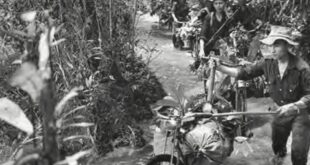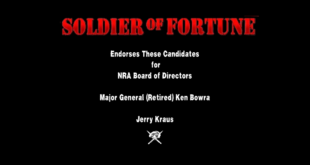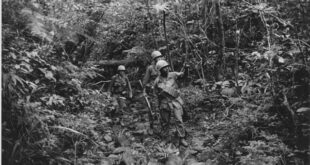COMMENTARY by Susan Katz Keating
The work has been called the most dangerous form of journalism.
Amid my daily influx of emails, text messages, and phone calls, I frequently am hit up by people who want to go downrange under my name. They approach me with variants on the following requests.
“I’m going to Ukraine. Can you get me a press credential?”
“I need a press card for Israel. And a plane ticket.”
“I’m going to Syria. I need a letter of assignment on official letterhead. You can email it to me as a PDF.”
Aside from the fact that I don’t give press credentials, ever, to anyone, the requests above stand out for a reason. The supplicants are not war correspondents. Some are not even journalists. They have zero knowledge of how to report and structure a story about war. They do not understand the complexities of armed conflict. They simply want to go downrange, and hope to get there farther and faster under the guise of being a war correspondent.
Sightseers being attracted to conflict is nothing new. War tourism existed during the Napoleonic Wars, the American Civil War, the Crimean War, and most recently in Syria, Ukraine, and Israel.
They go because they want to “feel that they are a part of it,” one Dark Tourism guide told journalist Debra Kamin when explaining the phenomenon. “They can go home and tell their friends, ‘I was on the border and I saw a battle.’ ”
But whereas a war tourist usually remains a safe distance from the front, a combat correspondent goes directly into the thick of things. Theirs is highly specialized, challenging work.
It’s not for everyone. I have seen newbie “freelance” war-corros create situations that made my skin crawl. One man saw a large piece of unexploded ordnance on the ground in Syria. He picked it up and posed for a photo of himself holding it proudly – endangering himself and everyone within the blast zone. Another made jokes in Bosnia about the local conflict, not grasping how serious the conflict was. He fled in fear of his life. In one instance, a woman broke down sobbing in Northern Ireland, and had to be evacuated amid chaos, placing others in extreme danger.
The newbies each came home and claimed to have been a war correspondent. They were not even close.
What does it take, then, to be a war correspondent; and how do you become one?
Through years and years of apprenticeship and experience in fundamental journalism – covering police, obituaries, and city council meetings – followed by increasingly complex work that prepares you for the fast moving, opaque, risky, and nuanced niche of reporting on armed conflict.
The work has been called the most dangerous form of journalism.
In 2024 alone, 104 journalists were killed on assignment, according to the Committee to Protect Journalists. Last year, 363 were imprisoned. Sixty-nine are missing.
Writing about conflict and hot zones takes a toll, both physically and mentally. Journalists get injured, or suffer from health issues. Even the most hardened reporters are human. Living and working inside a conflict zone can alter a journalist’s mental and emotional wellbeing – something that requires careful training.
“It is important that journalists prepare before an assignment to understand the environment they are entering and the deadly threats they may face,” notes the CPJ.
Which reporters would I trust to go downrange in a conflict zone? Only a handful, including those whose bylines appear in this publication.
Among them, Heath Hansen. He has been to war as a soldier, and has ventured directly into cartel territory while reporting from the U.S. southern border.
This includes Greg Chabot. He is a longtime writer for Soldier of Fortune, has served in war, and has written some of the most realistic, gritty stories I have been proud to publish.
Also Royce de Melo, who knows his history, warfare, and firearms, and writes engagingly about them.
This includes author and former SOF editor Martin Kufus, who manages to pull off being both informative and hilarious.
Also Gatimu Juma. He writes about conflict in the Horn of Africa – and nearly met his match when he was bitten by a deadly Black Mamba snake.
One would-be supplicant with no experience whatsoever contacted me when he wanted to go to Ukraine. He lamented that no one would give him a press pass. That’s a good thing. Publishers know the score.
War is not entertainment.
War is not a playground.
Inexperienced newbies put publications at risk. They demean actual war correspondents, and endanger many lives. They are tourists and rubberneckers.
Susan Katz Keating is the publisher and editor in chief at Soldier of Fortune.
 Soldier of Fortune Magazine The Journal of Professional Adventurers
Soldier of Fortune Magazine The Journal of Professional Adventurers






